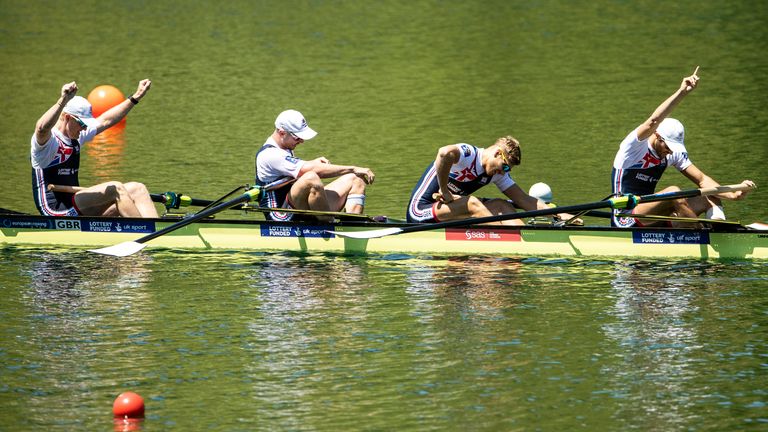Tokyo 2020: Team GB facing heat challenge as Olympics predicted to be hottest ever
Team GB are looking to replicate Rio 2016 medal haul as they finished second behind the United States and above China; Tokyo 2020 predicted to be hottest Olympic Games in history with temperatures over mid-30s with 80 per cent humidity
Wednesday 21 July 2021 11:28, UK
Heat and humidity, two words to strike fear into the hearts of even the most accomplished Olympic athletes.
Covid notwithstanding, it's the biggest challenge facing Team GB as they look to replicate a medal-haul from Rio 2016 that saw them finish second on the overall table, above the sporting super-power of China.
July and August are the hottest months of the year in Tokyo, and athletes have been told to expect temperatures in the mid-30s with 80 per cent humidity, the suggestion is in fact it could be slightly higher and it could be the hottest Olympics in history.
- What are the new sports at Tokyo 2020?
- Olympics Notebook: 'The oddest Games ever…'
- Tokyo 2020 build-up LIVE!
"Expecting the worst, expecting it to be very hot sort of high 30s, feel like 40 degrees," rower Rory Gibbs tells Sky Sports News from inside their preparation camp.
"Really you've just got to come out here as early as you can and acclimatise. You try not to use the air-con, and just get used to it when you can, but at the same time you want to recover during the night so it's kind of like finding the balance."
Medals in Tokyo could well be decided by who copes best with the heat, and given their reputation for success built on marginal gains, it's no surprise to learn Team GB have focused a lot of their sports science on strategies to help their athletes prepare to cope with the conditions.
In the weeks building up to the Games, endurance athletes from sports such as football, rugby 7s and hockey used innovative heat chambers provided by the English Institute of Sport, where they were able to simulate Japan's sweltering conditions.
"Initially it's like going into a sauna, it's quite nice, and then it just gets worse and worse, and hotter and hotter," says Ellie Rayer from the Team GB hockey squad who spent five days at Bisham Abbey working in the greenhouse tents for 90 minutes at a time.
"Obviously the sweat, you are drinking an awful lot, your brain function definitely sort of goes, you feel a bit foggy even like the simple tasks."
Dr Victoria Downie, a Performance Scientist with EIS, says heat training helps athletes both physically and psychologically.
"Humidity adds a really difficult layer of complication, which is why we have done so much more this time than other Olympics that have been in hot countries.
"When you've also got the humidity on top of that, it basically means that sweat cannot evaporate from the body, and that's the main way the human body loses heat. So the higher the humidity, the less sweat we can evaporate which makes it really hard to cool down.
"I can guarantee that the athletes we're sending over will be as prepared as we can make them to deal with the potentially extreme environments."
Tokyo 2020 organisers have made efforts to protect athletes from the extreme heat through cooling fans and shaded tents at competition venues, with many athletes also planning to use ice jackets to help them cool down after competing.
Sports like the marathon and football have also been moved 600 miles north to Sapporo, where average temperatures tend to be cooler.
The Team GB Women's Football team have taken rehydration to another level as they chase a first Olympic medal, by analysing sweat from each of the players to create individual drinks to replenish salt and sugar levels during recovery.
"If you sweat more you need to drink more to get it back in, to keep you hydrated during the Games so it does not affect your physical performance," explains Arsenal and Scotland midfielder Kim Little, who is one of three co-captains.
"We are drinking and not just water, you know, electrolytes, our food intake, to keep us hydrated. Our science staff and our medical staff have made sure all that's in place so that we all know we're making sure we're taking the right things to make sure we can be at our best on the pitch."






